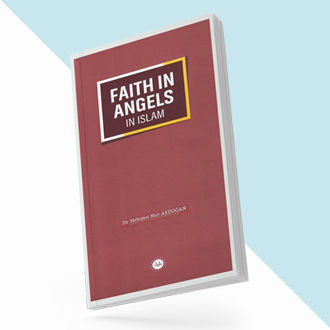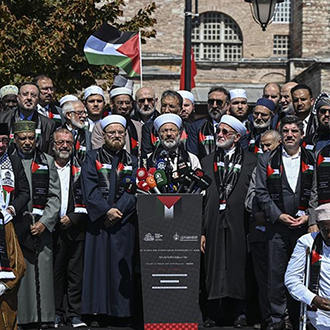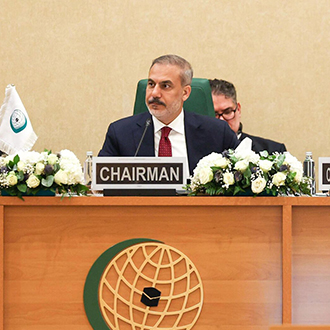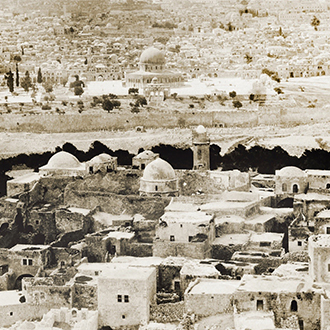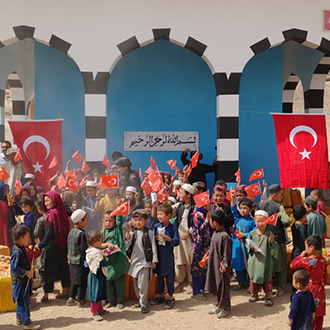Sir! We initially began our conversation with the religion-science conflict, and it appears that our discussion has diverged onto different subjects!
Oh, I was just getting there. Certain inventions and human advancements have driven human beings away from Allah. These inventions and human advancements, particularly the invention of the machine, have tempted human beings to assume god-like attributes. This progression has occurred so rapidly that human beings have begun to perceive the universe as a vast machine, positioning themselves at its center. The fascination with their own knowledge and the immense power derived from machines overwhelmed them, leading them to perceive themselves as independent of God. Eventually, they even proclaimed, "God is dead," as they felt the need to replace the God they had metaphorically killed in their minds. Consequently, they replaced God with themselves, mirroring the stories of Pharaoh and Haman. After all, Pharaoh claimed to be god based on his power, while Haman boasted of his knowledge. The outcomes of their actions are well-known. As we witness the state of modern society, it becomes evident that we are experiencing the ramifications of the same dynamics.
Oh, sir! It feels a bit awkward for me but I have to intervene. You initially mentioned the conflict between science and religion. Let us refocus our discussion on that topic.
All right, let us continue our discussion on the conflict between science and religion. Modern humans have attempted to make a religion out of the science they produced themselves. Initially, they assigned a position to God known as deism. Then they retired God, even suggesting that the retired God could die. So they pronounced Him dead. This pronouncement was made almost as a jest, but the underlying idea was that modern human beings believed they could replace God with their own scientific achievements.
Nevertheless, the desire of modern humans to replace God and create a human entity according to their own wishes proved to be an unattainable goal. As the famous Turkish poet Necip Fazıl said that they wanted to create a human being in such an image but it was destined to fail. Despite the advancement in knowledge and science, the concept of God did not disappear from people's minds as they had assumed. Large masses continued to hold their belief in God, while at the same time, some people sought to exert control over others using the power of science. However, as these people began to disrupt the delicate environmental balance on Earth, suspicion started to arise. Finally, their own disregard for the consequences led to a deterioratıon of their own false construct. The conflict they had hoped to incite between religion and science eventually turned against them. However, we must acknowledge that they did achieve one thing: the creation of a generation of youth characterized by selfishness, wastefulness, and a lack of purpose. It is worth noting that some individuals recognized the compatibility and mutual support between science and religion, but unfortunately, their voices went unheard.
Yet, there are those who persist in fuelling this conflict between science and religion. Who knows, maybe the apocalypse will take place this way. It is ironic to observe that in the early nineteenth century, deists and atheists dismissed the possibility of an apocalypse, yet many of them have now become staunch environmentalists, emphasizing the importance of preserving our planet. One cannot help but question their previous indifference: Where have they been all this time? What were they thinking?
Oh, sir! So do you mean there is no conflict between science and religion?
That is precisely what I am saying. There is no inherent conflict between religion and science. The conflict is between those who attempt to produce religion out of science and those who see religion as science. It would be ideal if each pursued its own path without conflicting with the other. If it was instilled in people the understanding that science serves the worldly welfare of humans, and religion serves the social order, morality, and spiritual aspect of human beings. Moreover, if people embraced the understanding that building a meaningful life in this world is also building a foundation for the afterlife, how beautiful the world would be!
Sir! Is it really possible to have such a world?
Let's just wish, intend, and be determined! Why not? All the prophets and the Prophet Muhammad, peace be upon them, were sent and assigned to establish such a beautiful order. Let's not forget that the world is founded on two realities: conflict and solidarity. The order is to find a balance between these two. This is exactly the task of the prophets. Actually, the beloved Prophet (saw) taught us a lesson related to this through an example about grafting dates.
How, sir?
After he migrated to Medina, the Prophet (saw) observed the people of Medina grafting palm-dates trees. So he said to them: “I do not find it to be of any use.”, so they abandoned this practice. However, that year the yield dwindled. When they informed the Prophet, he said, “I am a human being, so when I command you about a thing pertaining to Allah, accept it, and when I command you about a thing out of my personal opinion, keep it in mind that I am a human being. You have better knowledge (of a technical skill) in the affairs of the world.” (Muslim, Fadha’il, 38)
Sir, how should we interpret this?
What we need to understand is that human beings have limitations in their power and abilities. Allah the Almighty did not let the Prophet (saw) say this in vain: “Say, ‘I am only a man like you, to whom has been revealed that your god is one God’…” (Kahf, 18:110) It is not possible for someone to grasp everything, to reach everywhere, and to intervene in every incidence. This is beyond human power. Only Allah the Almighty can do this. The Prophet (saw) was sent only to guide people to the right path and to warn them about the wrong ones. So, people should talk about what they know and understand.
Religion and science are two distinct structures but they can mutually support each other. Each exists for the good of humanity. However, the balance of conflict and solidarity between them should be carefully observed. The beloved Prophet, peace be upon him, pointed out exactly this balance through the narrative of the grafting of dates. A balance based on wisdom and justice. Preserving this balance requires observing wisdom and justice in our actions and decisions. Allah the Almighty has generously granted human beings the opportunity to navigate this balance. As long as we remain mindful of the Giver and do not forget our reliance on Him, we can uphold this delicate equilibrium between religion and science.
